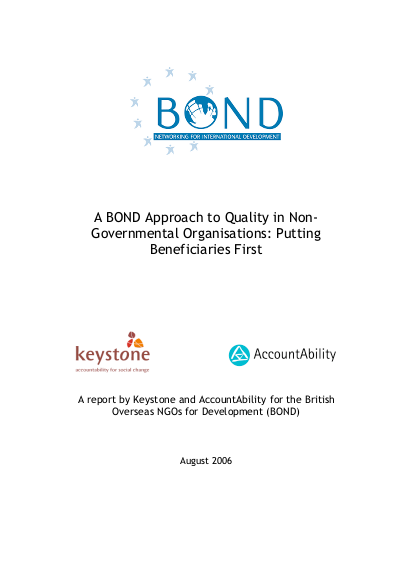
Quality standards pervade all aspects of society, from quality management systems standards for nuclear power stations to technical specifications for manufacturing bubble gum. For NGOs the story is no different. As part of the growing debate about quality systems and standards to enhance the performance of NGOs, BOND commissioned this research to help us better understand the direction and approach that can be taken to further support its members.
The research involved: (a) an analysis of the current approaches to quality used by NGOs, both in the UK and internationally; (b) an online survey of BOND members; (c) a series of focus group discussions with BOND members; and (d) interviews with key opinion formers and those responsible for the main standards. The purpose was to review current practice, experience, and needs in the area of quality standards, as well as to suggest the roles that BOND and its members could play in this area going forward. The brief for the study had a strong technical orientation.
Throughout the consultations with BOND members, interviews with key informants, and review of the history and standards on offer, we found that the challenge lay not in the technical conversation — how to understand and implement standards — but rather in the political and strategic one — the realisation that the primacy of the beneficiary, through fully functioning, transparent, and responsive stakeholder relations, is at the heart of NGO quality. This leads to a new definition of NGO quality that forms the centrepiece of this report.
